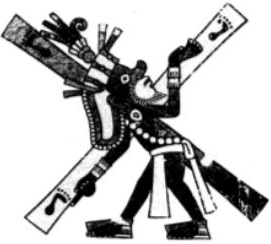Basic beliefs
There is one universal and transcendental God, Ahura Mazda, the one uncreated Creator and to whom all worship is ultimately directed.
Ahura Mazda's creation - evident as asha, truth and order - is the antithesis of chaos, evident as druj, falsehood and disorder. The resulting conflict involves the entire universe, including humanity, which has an active role to play in the conflict (see #3 below).
Active participation in life through good thoughts, good words and good deeds is necessary to ensure happiness and to keep the chaos at bay. This active participation is a central element in Zoroaster's concept of free will, and Zoroastrianism rejects all forms of monasticism.
Ahura Mazda will ultimately prevail, at which point the universe will undergo a cosmic renovation and time will end (cf: Zoroastrian eschatology). In the final renovation, all of creation - even the souls of the dead that were initially banished to "darkness" - will be (re)united in God.
In Zoroastrian tradition, the malevolent is represented by Angra Mainyu, the "Destructive Principle", while the benevolent is represented through Ahura Mazda's Spenta Mainyu, the instrument or "Bounteous Principle" of the act of creation. It is through Spenta Mainyu that Ahura Mazda is immanent in humankind, and through which the Creator interacts with the world. According to Zoroastrian cosmology, in articulating the Ahuna Vairya formula, Ahura Mazda made His ultimate triumph evident to Angra Mainyu.
As expressions and aspects of Creation, Ahura Mazda emanated seven "sparks", the Amesha Spentas, "Bounteous Immortals" that are each the hypostasis and representative of one aspect of that Creation. These Amesha Spenta are in turn assisted by a league of lesser principles, the Yazatas, each "Worthy of Worship" and each again a hypostasis of a moral or physical aspect of Creation.







